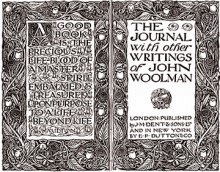The Isla Vista massacre has reinvigorated calls for sane gun laws in the U.S. In response, the same old counter-arguments against gun control have come out. Those in favor of (apparently unrestricted) gun rights seem to have cottoned on that their "we need to defend ourselves against the government" argument sounds paranoid and ludicrous to the average thinking person, so instead the talking point du jour is that since the killer also stabbed people and hit people with his car, why not restrict "knife rights" and "automobile rights." The argument is intentionally absurd. Those who make it hope to point out how silly it would be to regulate guns, since bad people would just kill with cars and carving knives. But it doesn't take more than a cursory examination to see that the argument is absurd for an entirely different set of reasons.
The argument commits the fallacy of false equivalency. A semi-automatic gun, a knife and a car are very, very different things. They do share the commonality (along with a bowling ball and a hammer and a 2x4 and a length of rope and a piece of pipe and a rock and a vast array of other material objects) they they can be used to kill or injure someone. But it is the differences that are more significant.
A car and a knife serve fundamental utilitarian purposes that have nothing to do with harming people, whereas a handgun is designed specifically to kill or wound people--that is its purpose.
It is not easy to kill a large number of people with a car or a knife. It can be done, but it is not easy, as people have a far better chance of getting out of the way of a speeding car or a slashing knife than they do a spray of bullets travelling at thousands of feet per second (dodging bullets only works in the movies). You may recall that a month ago a troubled teen in Pennsylvania went on a stabbing rampage in the crowded hallway of his school. He managed to stab 21 people before being subdued. No one died. Most of the injuries were minor. How different would the results have been if he had had a pair of semi-automatic handguns rather than a pair of knives?
Also about a month ago a young man drove a vehicle into a large crowd of people on a closed-off street at the SXSW festival in Austin, TX. Although he was accused of doing it intentionally, that has not been proven. He was drunk and fleeing from the police when he turned into the cordoned-off street filled with festival-goers, so it was quite possibly an act of drunken recklessness rathen than a premeditated mass killing attempt. However, 4 people died and 24 were injured. He then crashed the car and was subdued with a stungun and is currently incarcerated awaiting trial. How different would the results have been if he had fired into that crowd with semi-automatic handguns or assault rifles with high capacity magazines and hundreds of rounds of ammunition?
Additionally, at the SXSW event, there were in fact "controls" in the form of police-manned barracades intended to block someone from driving onto the closed-off streets. Obviously that didn't work well against this particular young man. I wouldn't be surprised if next year they employ concrete barriers. I'm sure no one will complain that the barriers are impinging upon their rights.
The point is that people will kill other people, unintentionally or intentionally. Someone who is determined to murder others has a fair chance of succeeding, even if all they have to do it with is a good sized rock. But the "success" of their endeavor will be limited by their choice of weapon. Semi-automatic handguns and assault rifles radically change the equation, making it possible for that murderous individual to do exponentially greater damage to more people in a very short amount of time and from a safe distance. It also makes it much more dangerous for those who attempt to intervene.
If cars were outlawed it would (obviously) prevent us from using cars for their intended purpose. The loss of intended use would far outweigh the mitigation of threat, especially considering that we do not have an epidemic of car violence in this country in the way that we do with gun violence. Most knives are likewise utilitarian tools used for cutting fruit and bread and steak and whatnot. If semi-automatic handguns and assault rifles were outlawed and if ownership of ammunition was limited and regulated, what day-to-day activities would be impinged upon? Target shooting? Maintaining the fantasy of overthrowing the government? Even forms of hunting that "require" semi-automatic rifles could continue to be allowed but access to the weapons and ammunition controlled.
One last thing worth considering: Automobiles are already far more regulated than guns in this country. Think about all of the regulations one has to follow in order to purchase and legally drive a car. We regulate the snot out of cars and even more so large trucks; from mandatory driving tests to licensing to insurance to registration to required vehicle inspections to diligent police enforcement of the many driving laws, etc., etc. Guns? Not so much. Why don't we at least regulate gun ownership and usage to the same degree that we do automobiles?







